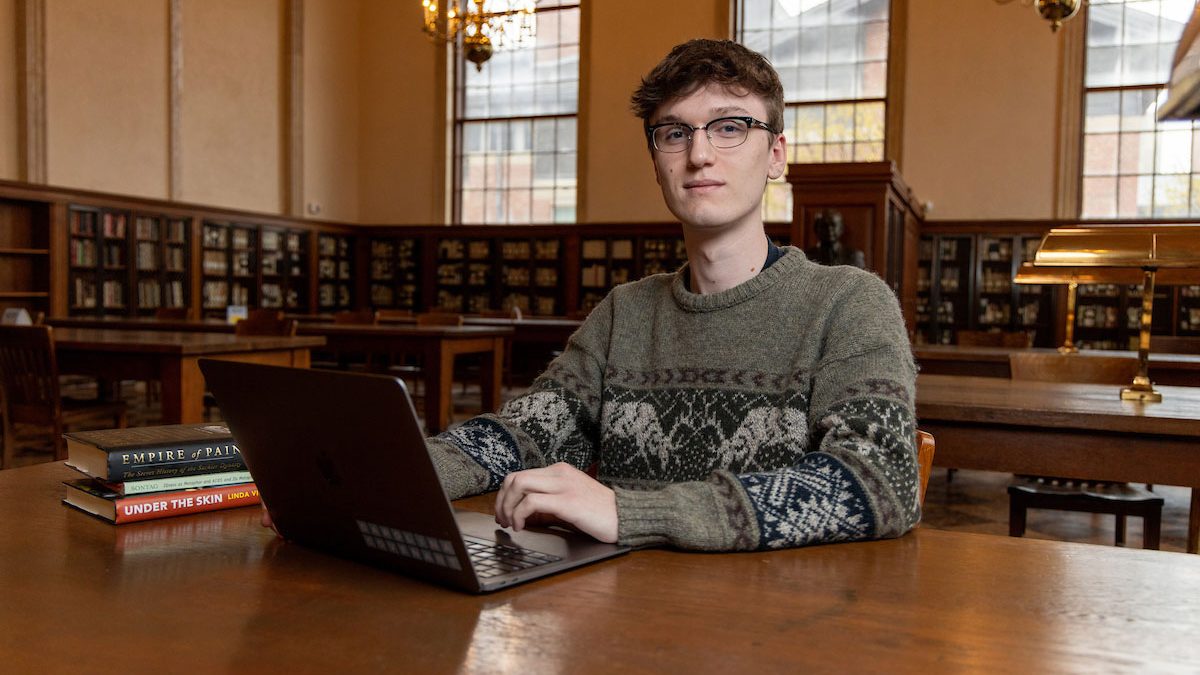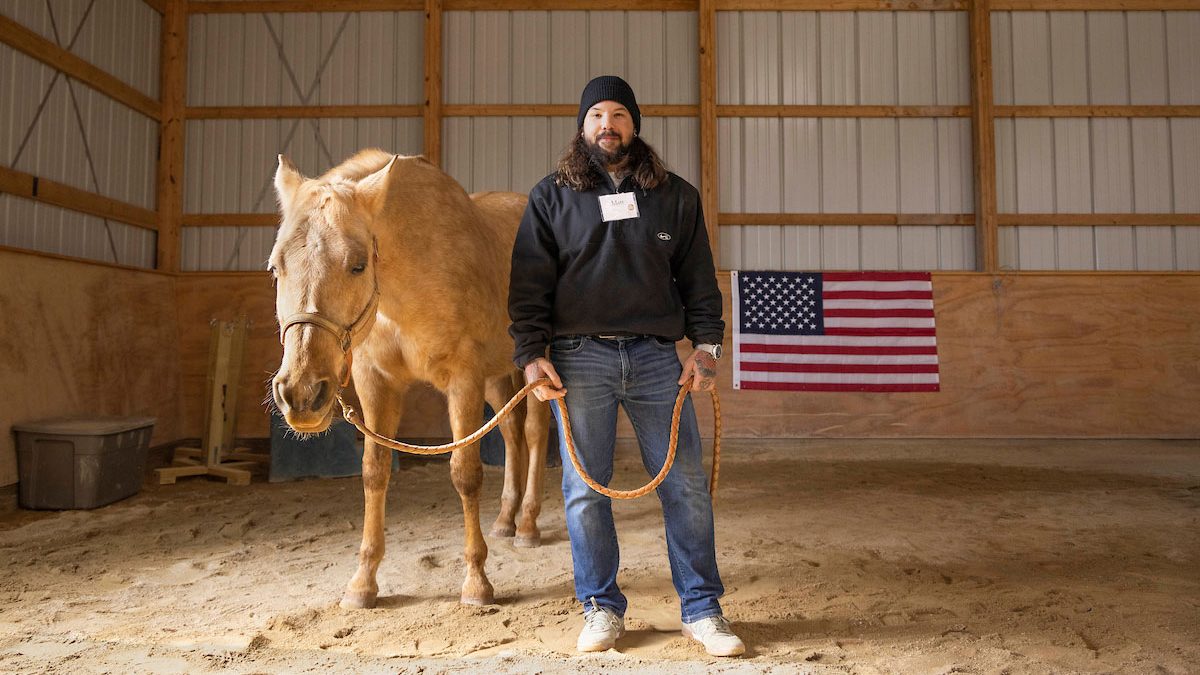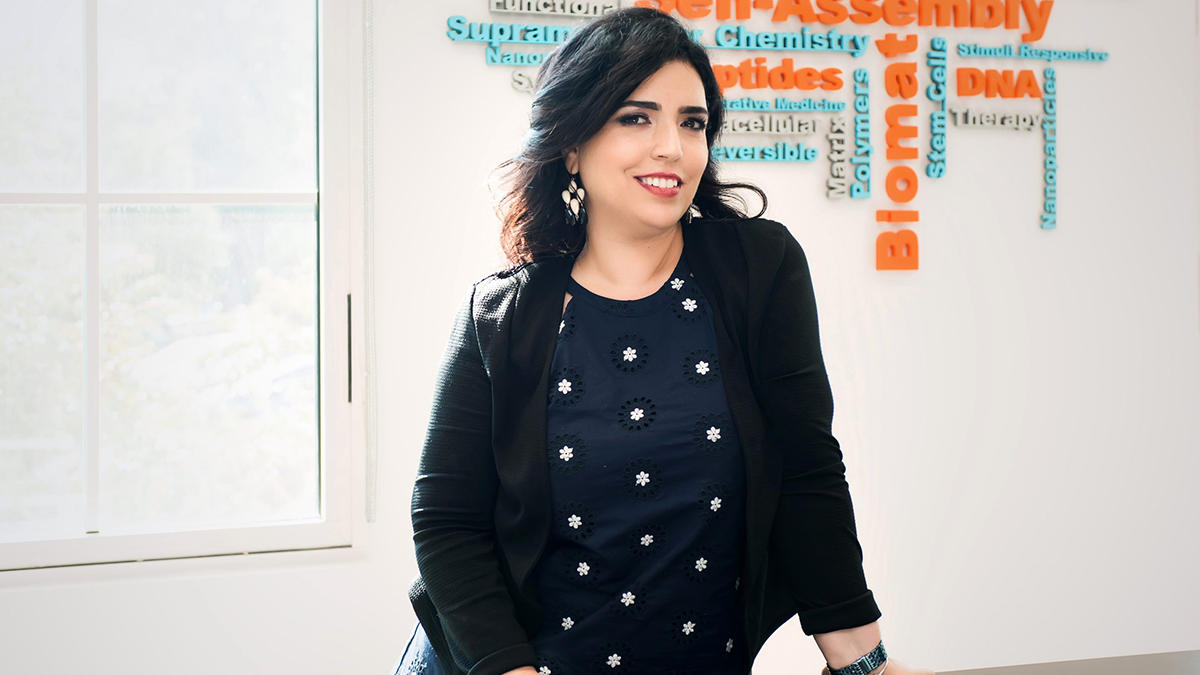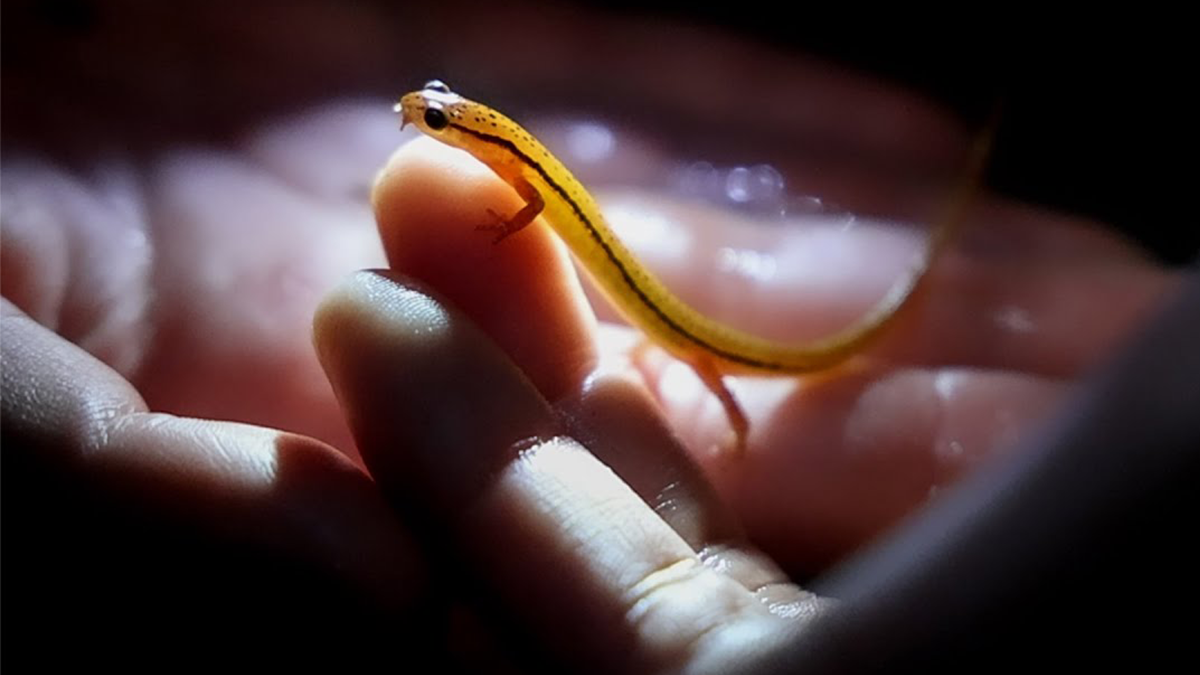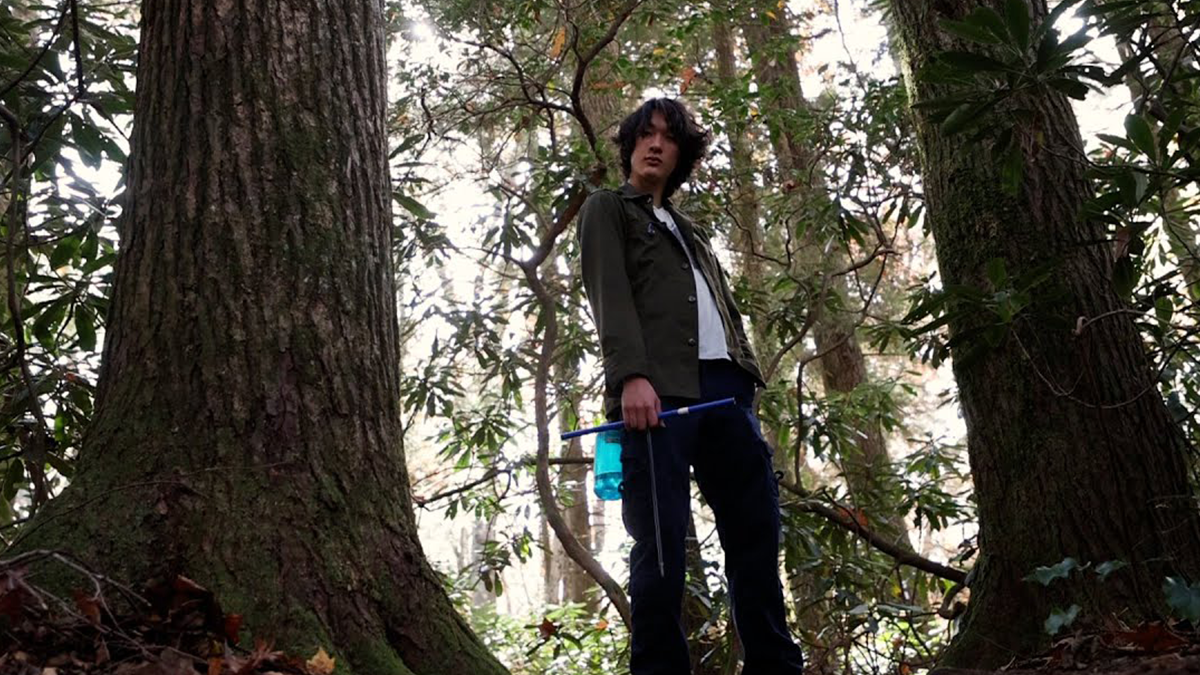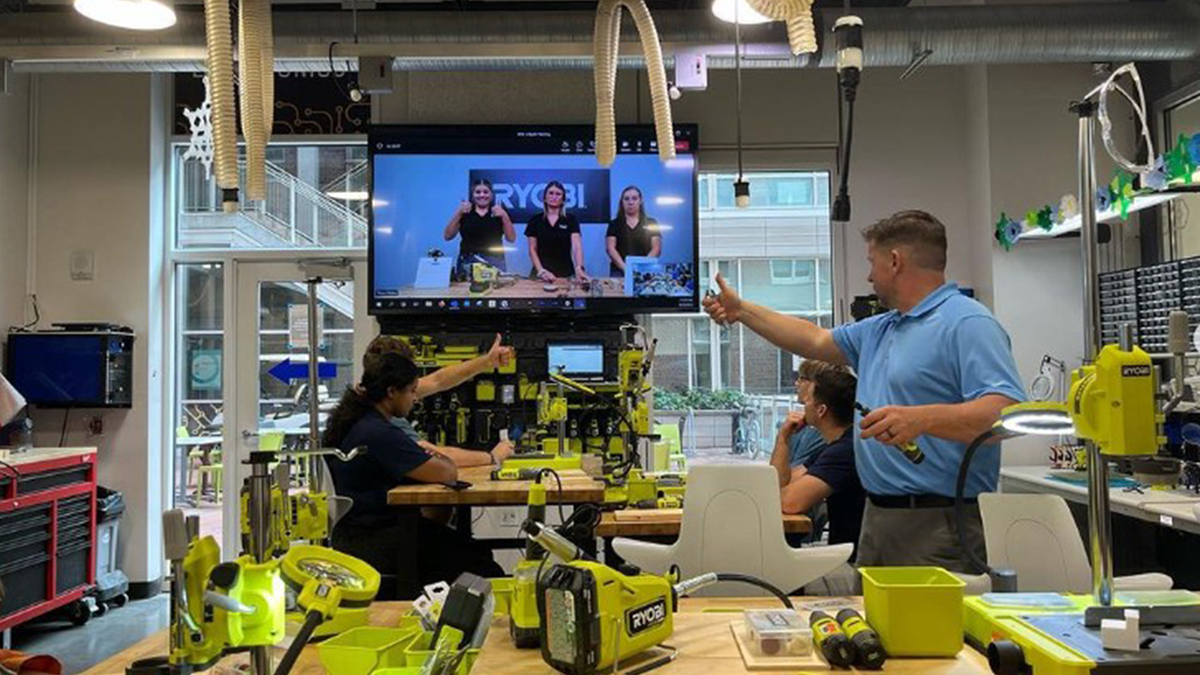Connecting Carolina to Students and Educators across the State
"This university is a public university that truly serves everyone, not just itself.”
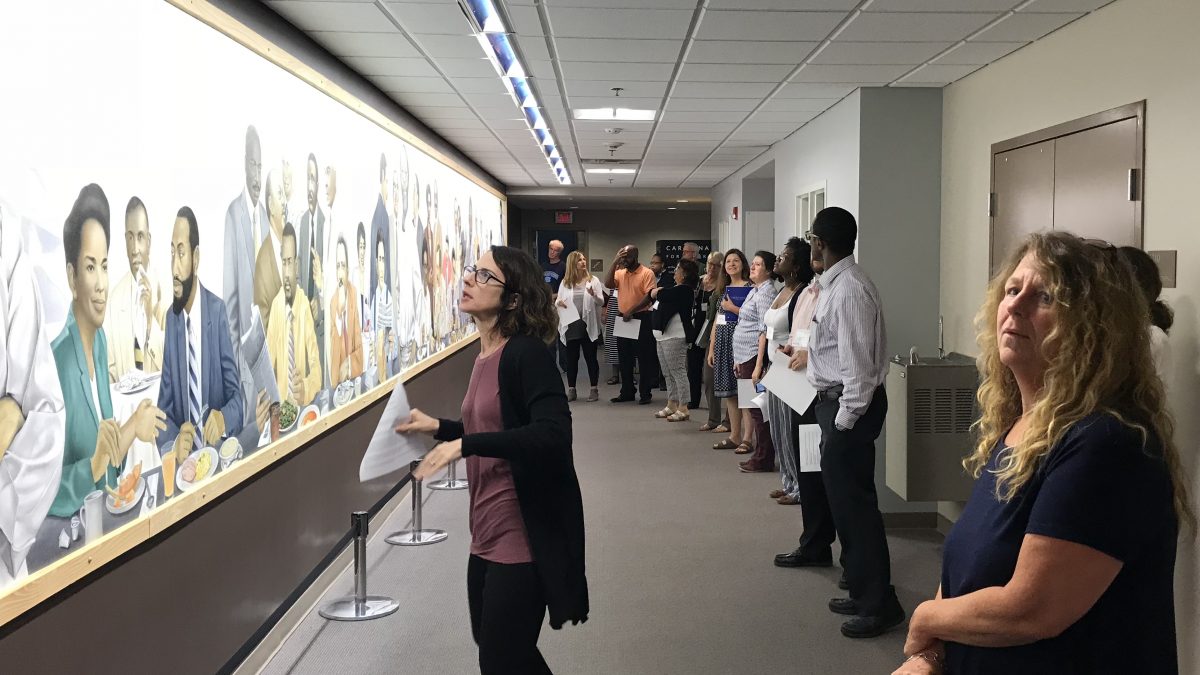
"This university is a public university that truly serves everyone, not just itself.”
“Before coming to Carolina, I taught in public schools,” said Christie Norris, director of Carolina K-12 at UNC-Chapel Hill. “As a teacher, I was frustrated by the amount of struggling going on in the public school system. It didn’t make sense to me how there were such thriving universities right next to failing public schools.”
Fortunately, the Carolina Public Humanities (CPH) program at the University of North Carolina at Chapel Hill is committed to doing something about these disparities.
CPH uses the humanities as a gateway to deepen people’s understanding of history and culture by engaging audiences with lectures and seminars across the state. The program connects Carolina with the North Carolina community in a variety of ways, including the Carolina K-12 and Partnership with Community Colleges initiatives.
The Partnership with Community Colleges initiative bridges the gap in resources between UNC-Chapel Hill and the North Carolina Community College System by responding to the interests and concerns of community college students and faculty. CPH also helps organize events that connect faculty among both institutions with colleagues and public audiences.
“Our goal is to respond to the needs of community colleges and the broader community,” said Joanna Smith, PhD candidate at Carolina and associate director for state outreach at CPH. “Given that Carolina is a public university, we are here to serve the state and the students and educators of the state. This includes the state’s community college network.”
By orchestrating a variety of cultural events and informational lectures, CPH expands their learning opportunities beyond the classroom, peaking the interests of community college students eager to learn more.
“Community college students and North Carolinians in general have a hunger to learn about history and culture,” said Smith. “We have the ability to feed that hunger through our events.”
According to Smith, much of the magic that happens at CPH’s community college events occurs through conversations with scholars and audience members following the events. Given the limitations of COVID-19, these post-event networking opportunities are much harder to achieve.
“There has been a steep learning curve involved in making space for these real conversations and the magic they stimulate in a virtual platform,” said Smith. “It has been amazing to see people stepping up to the plate to ensure that our work is still impactful during these times.”
People like John Caldwell, associate professor of Hindu-Urdu at UNC-Chapel Hill, who recently hosted a virtual event surrounding Indian music. Caldwell played songs in his living room along with fellow professor Afroz Taj, while encouraging a room full of community college students to describe what they’d heard. Smith said it truly felt like the students were sitting in his living room conversing with him in person — and no magic was lost.
Beyond the discussions surrounding the events themselves, much of the magic of this partnership stems from the establishment of lasting relationships across North Carolina.
“So much of the work we do is relationship building,” said Smith. “Community colleges don’t always have the bandwidth to work on events but still want to build relationships and connections across the state. This is where Carolina is able to step in to be a conversation partner and relationship stimulator.”
Carolina is stepping up in other student communities, as well, through CPH’s Carolina K-12 initiative.
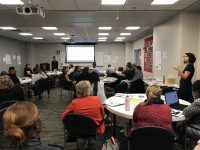
Christie Norris leading a 2019 Carolina K-12 conference.
Carolina K-12 serves North Carolina’s kindergarten through twelfth-grade teachers by providing free professional development, continued education and equality programs in humanities. Director Christie Norris and her team are working toward decreasing the differentiation of resources between North Carolina universities and K-12 schools — starting with teacher support.
“The difference between a senior in high school and a first-year student in college is only a couple of months, but the difference between being a K-12 teacher and a college professor is substantial,” said Norris. “The Carolina K-12 program has helped bridge this gap. Through this program, we are able to treat K-12 teachers like the scholars they are.”
Norris shared that teachers seldom feel like scholars, especially in these difficult times. They come to the program feeling beaten down, exhausted and disheartened. Carolina K-12 strives to alleviate their struggles by helping teachers reconnect with their passion for education, providing them with additional tools and resources to succeed in the classroom and ensuring that they leave feeling like valued professionals.
“In anything that we do, love and success is in the details,” said Norris. “We provide teachers with the red carpet experience and make sure that their time with us is well spent. Showing them they are valued and appreciated is equally important to the content and resources we are giving them.”
This “red carpet experience” does not go unnoticed or unappreciated by the teachers who encounter it.
“I was almost moved to tears several times with the way we were appreciated, not just with words but with action,” wrote Hallie Evans, a Wayne County elementary school teacher who attended a Carolina K-12 summer workshop. “It is so nice to be reminded that I am, in fact, a professional and not a robot.”
In addition to showing appreciation, Carolina K-12 provides teachers with resources, lesson plans and online databases that help them teach and discuss the humanities in creative and impactful ways. Specifically, Carolina K-12 believes that it is essential that teachers learn, openly discuss and responsibly teach about “hard history” to ensure students understand the implications of our past, their direct connections to our present and are empowered to address the challenges of the future.
“Public education is a major component of what we can do to enhance the engagement with the humanities around the state of North Carolina,” said Lloyd Kramer, professor of history at Carolina and the director of Carolina Public Humanities. “One of the key issues is how you help teachers when they’re addressing the most sensitive and difficult subjects to come up in the classroom. Creativity can really help people engage with a difficult topic.”
Given the events of this year, discussions surrounding “hard history” have become increasingly relevant and important. However, Norris feared these discussions would be limited given the inability for Carolina K-12 in-person events to take place — but instead, the discussions have only grown.
“Since so much of our work is centered around coming together and sharing experiences, I was originally adamant at the beginning of the pandemic about not being able to shift to an online platform,” said Norris. “However, we moved forward by transitioning everything online — and our numbers have exploded. Given our now virtual platform, we have been able to grow from reaching about 700 teachers to reaching 3,114 between May and October of 2020.”
While the Carolina K-12 team is excited about this significant increase, Norris is confident that there is still more room to grow.
“My goal is for us to not only keep expanding our reach, but to go deeper with the teachers we are already serving,” said Norris. “These amazing young people in these classrooms, literally from Manteo to Murphy, are our future decision-makers, and we have got to help these teachers help these students because ultimately, we all benefit.”
Community college students are our future decision-makers as well, and the work CPH does ensures that students of all ages are able to benefit from the resources, expertise and knowledge encompassed within Carolina.
“Through our partnership with community colleges and our Carolina K-12 initiative, we reach every single county and all levels of education around the state,” said Smith. “It is now more important than ever for us to be doing work like this that shows that this university is a public university that truly serves everyone, not just itself.”
